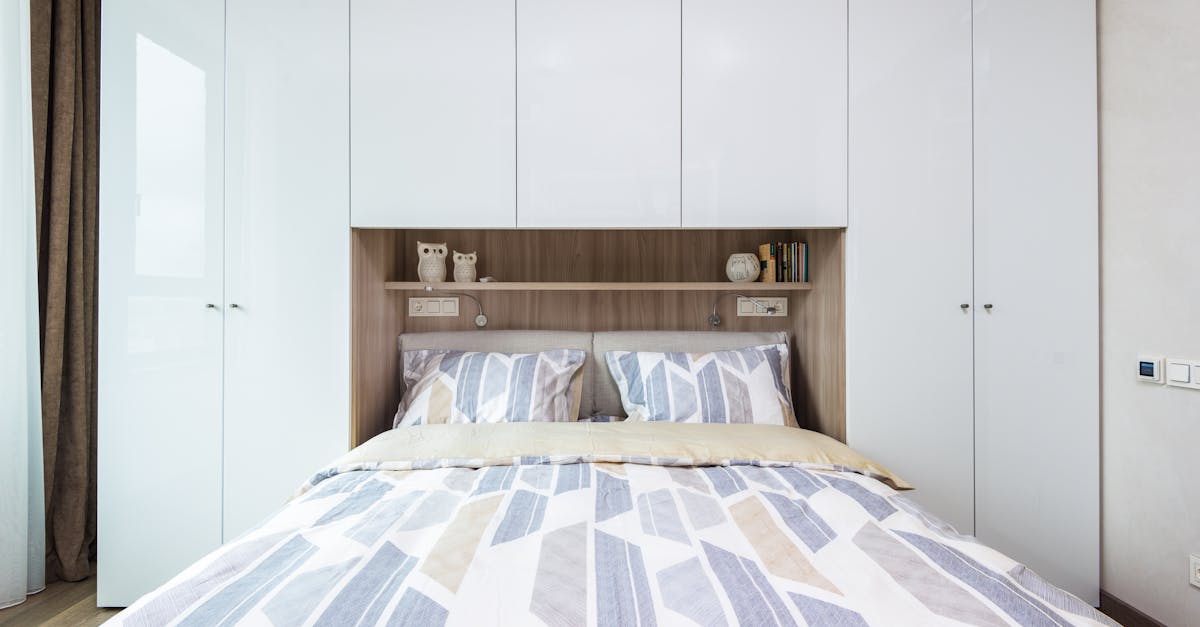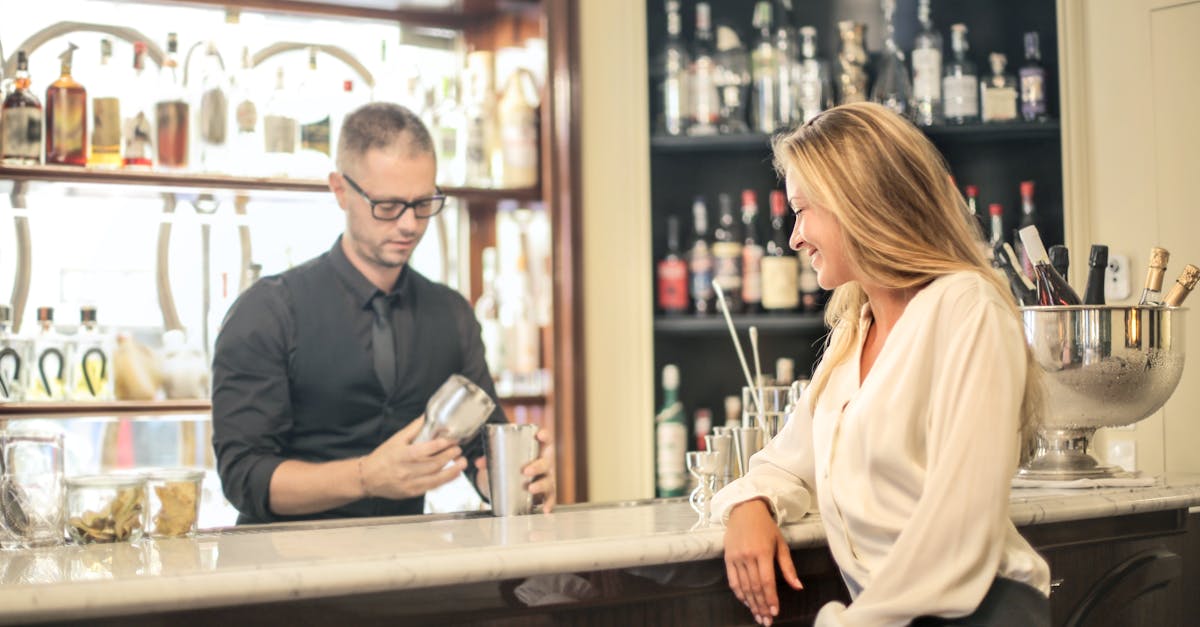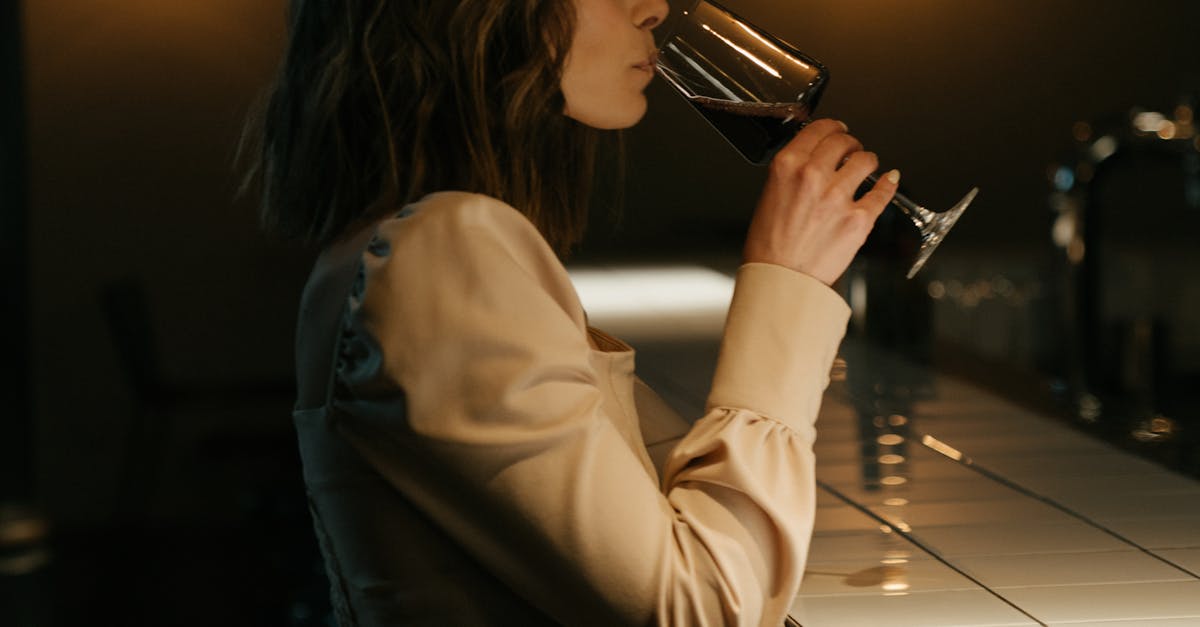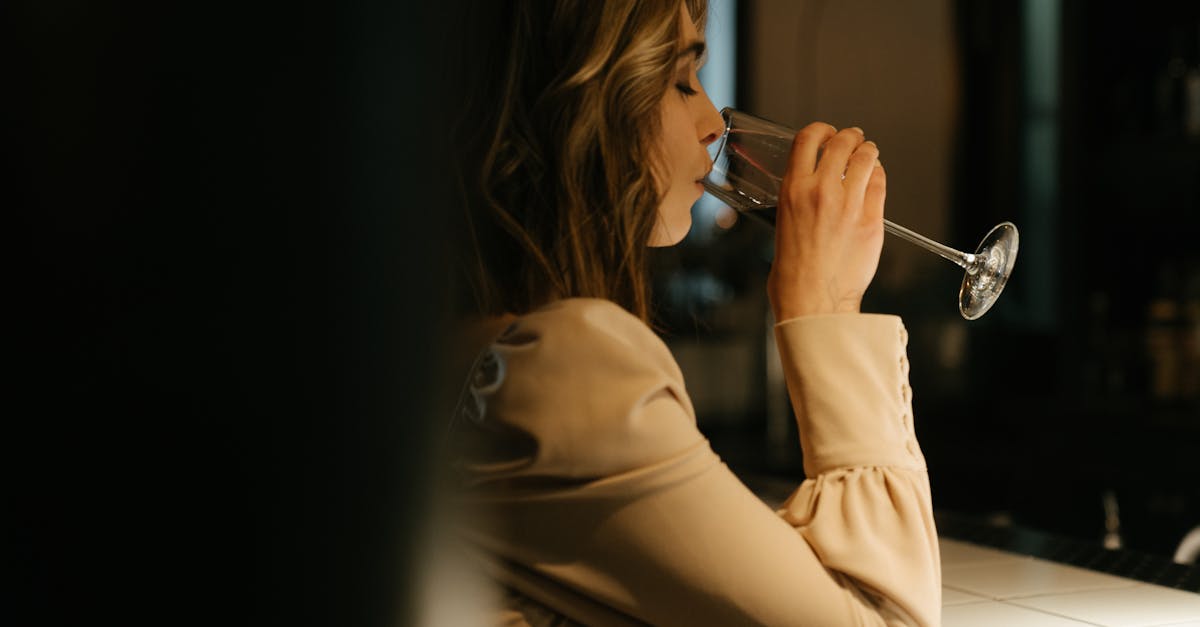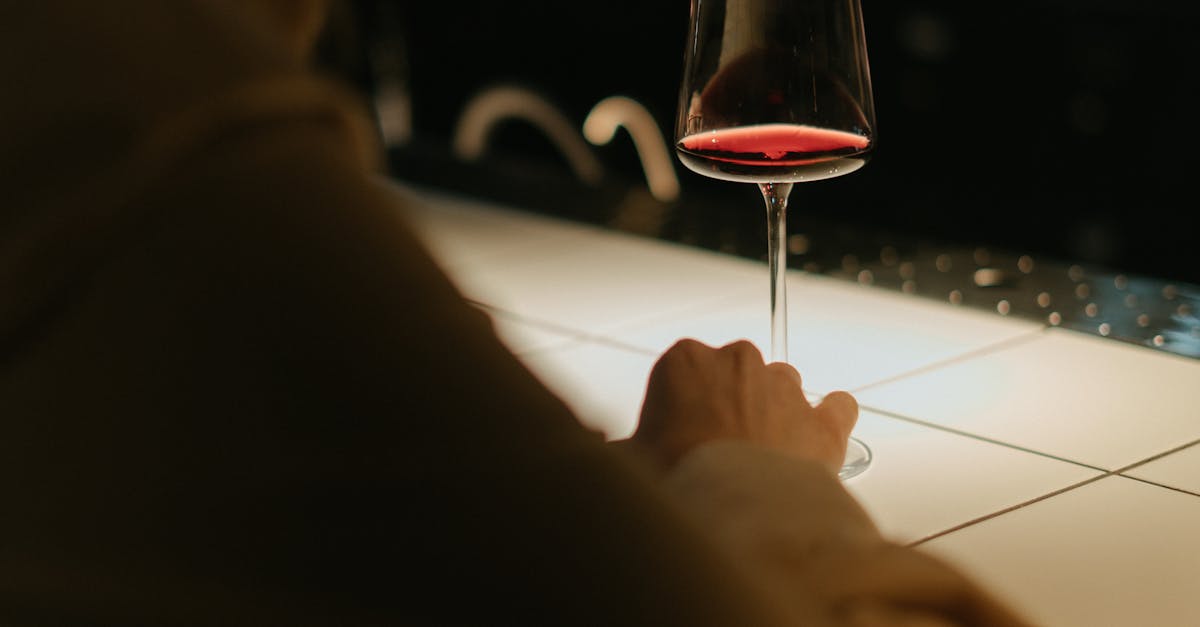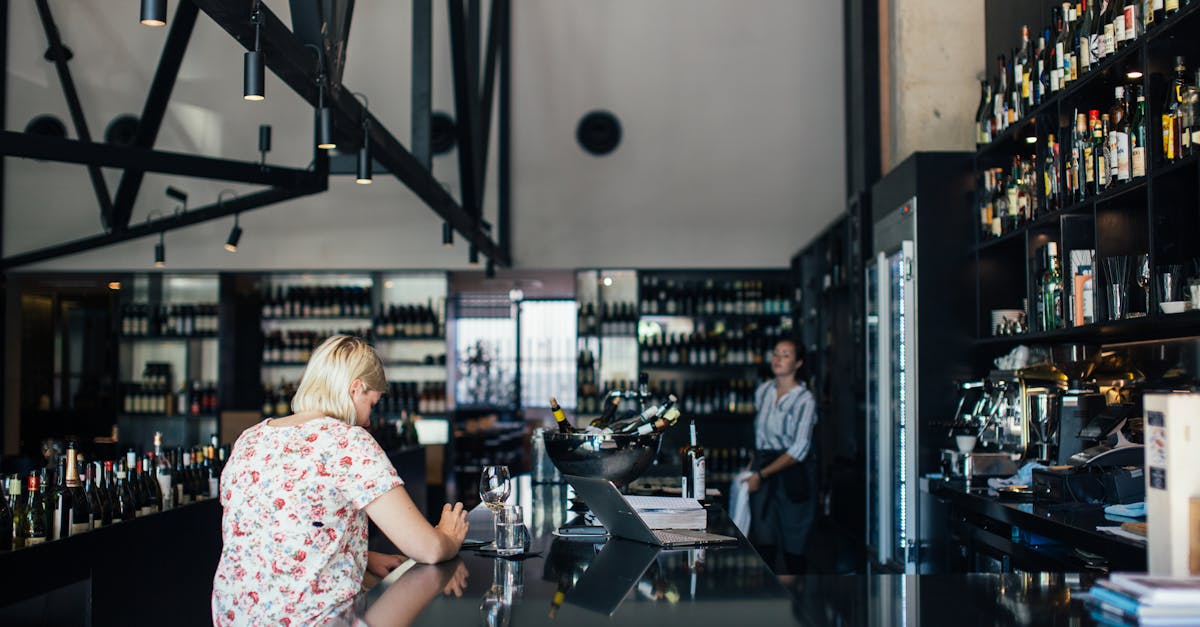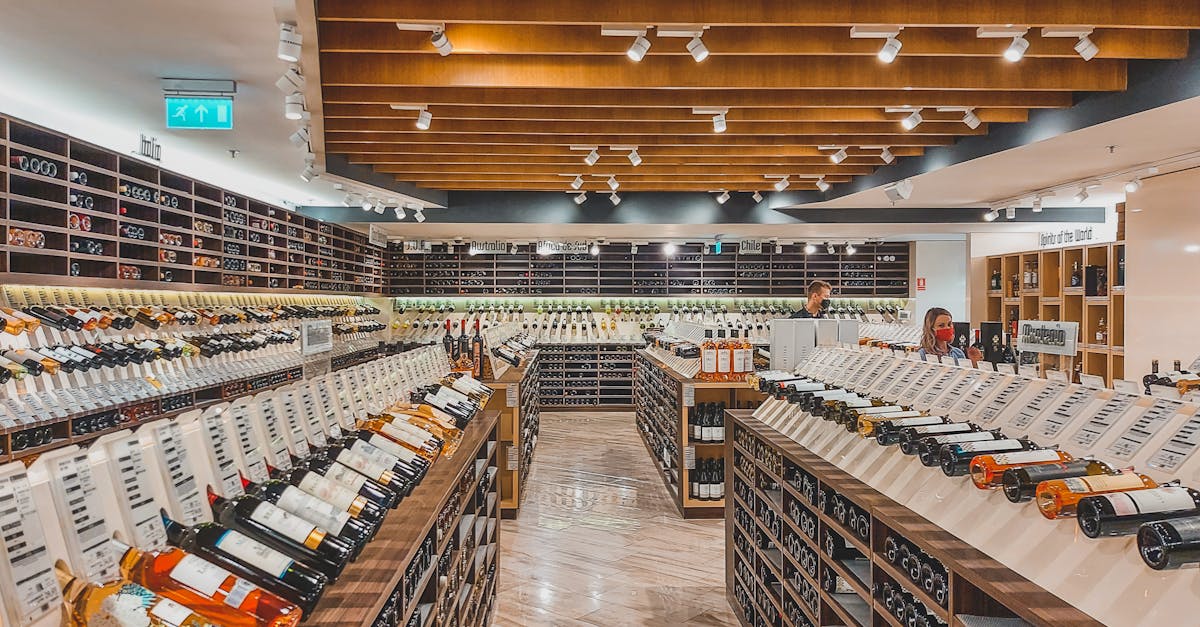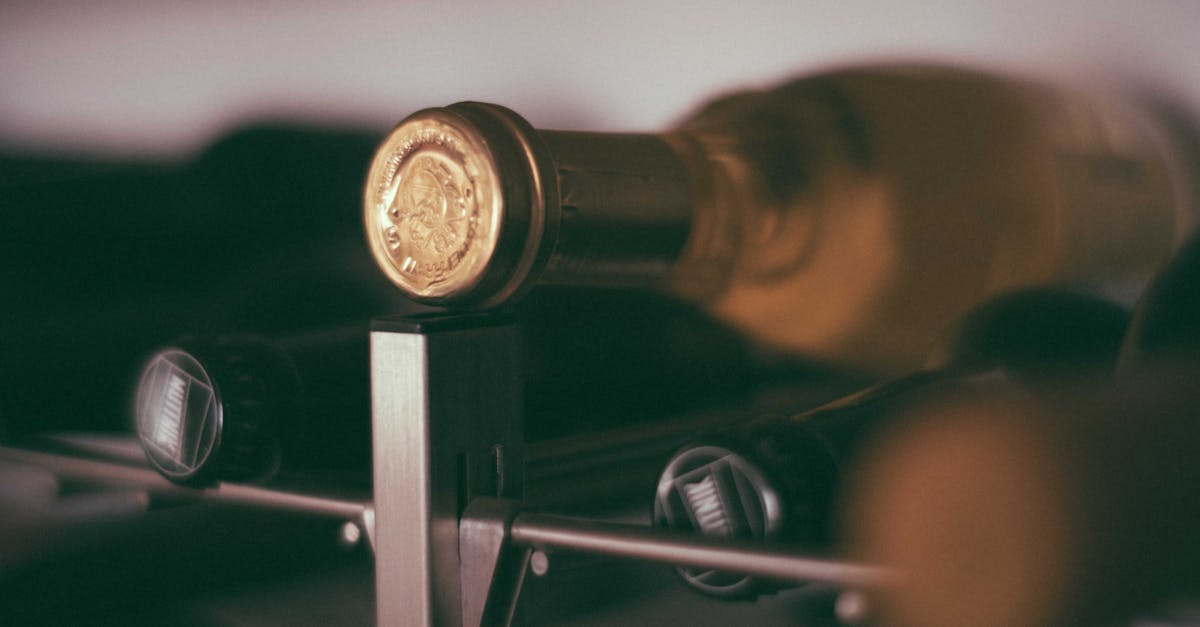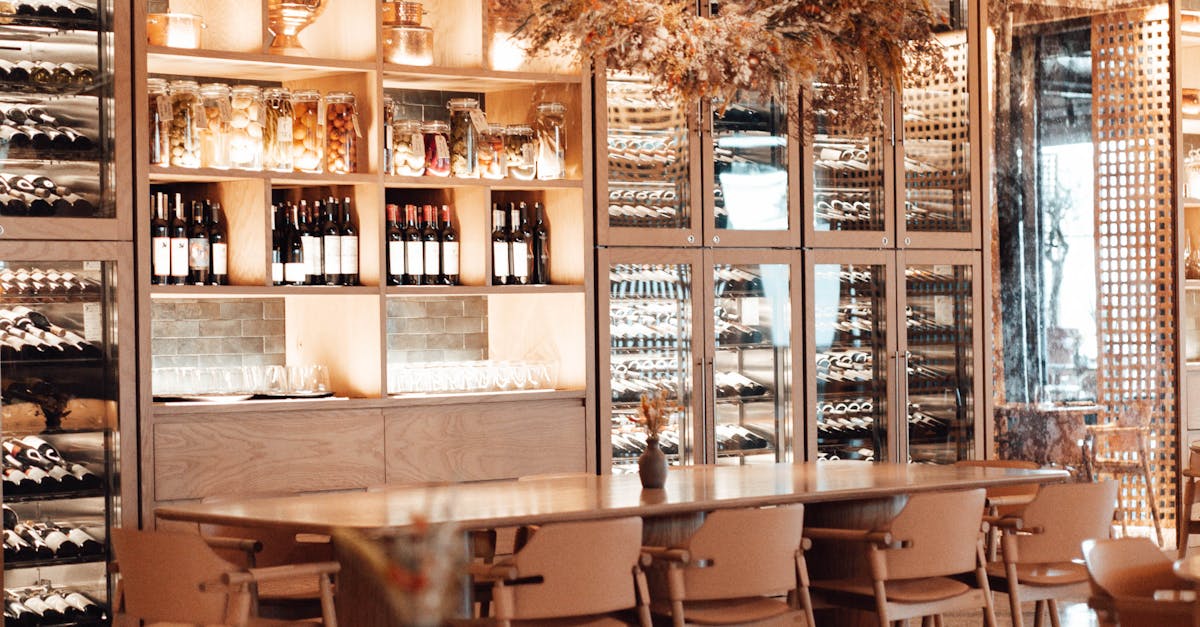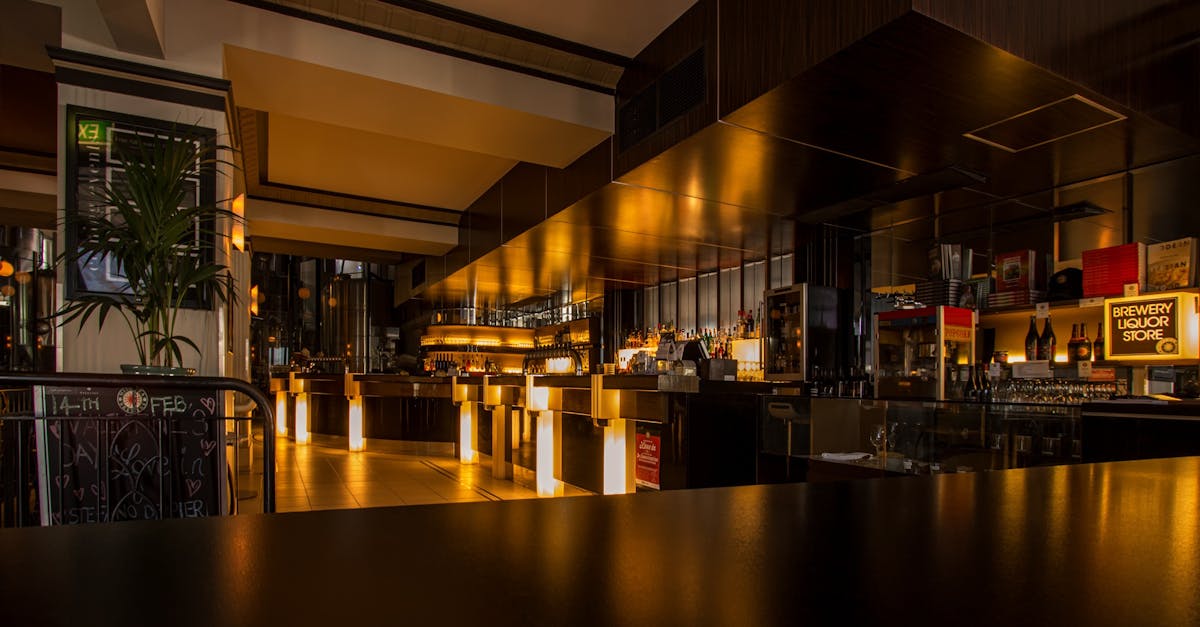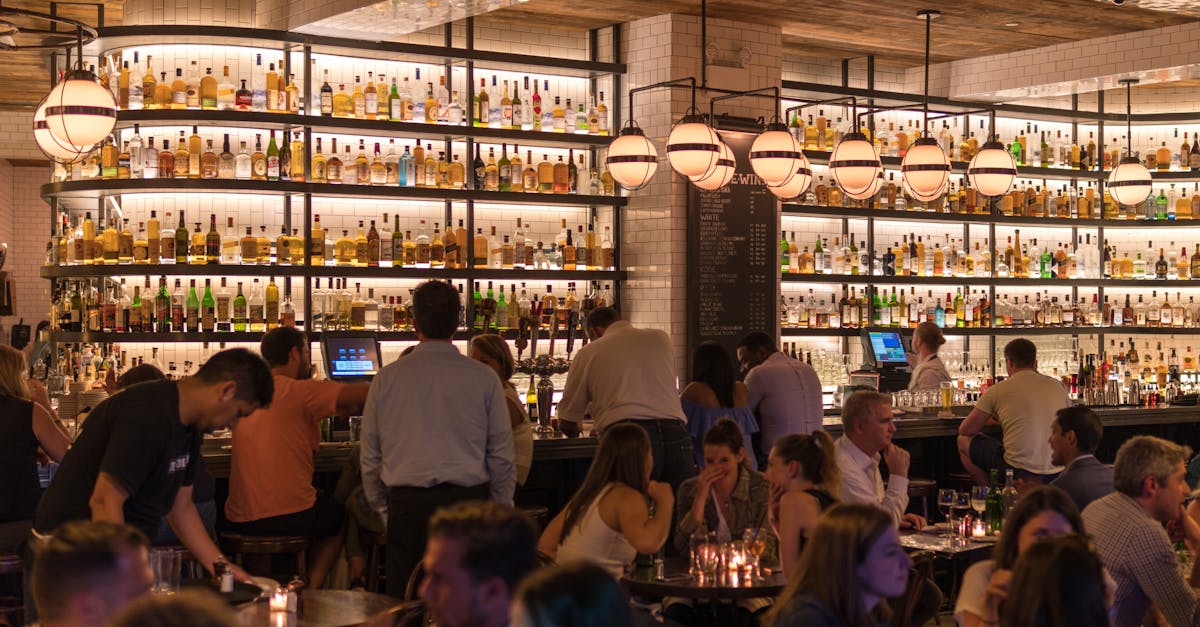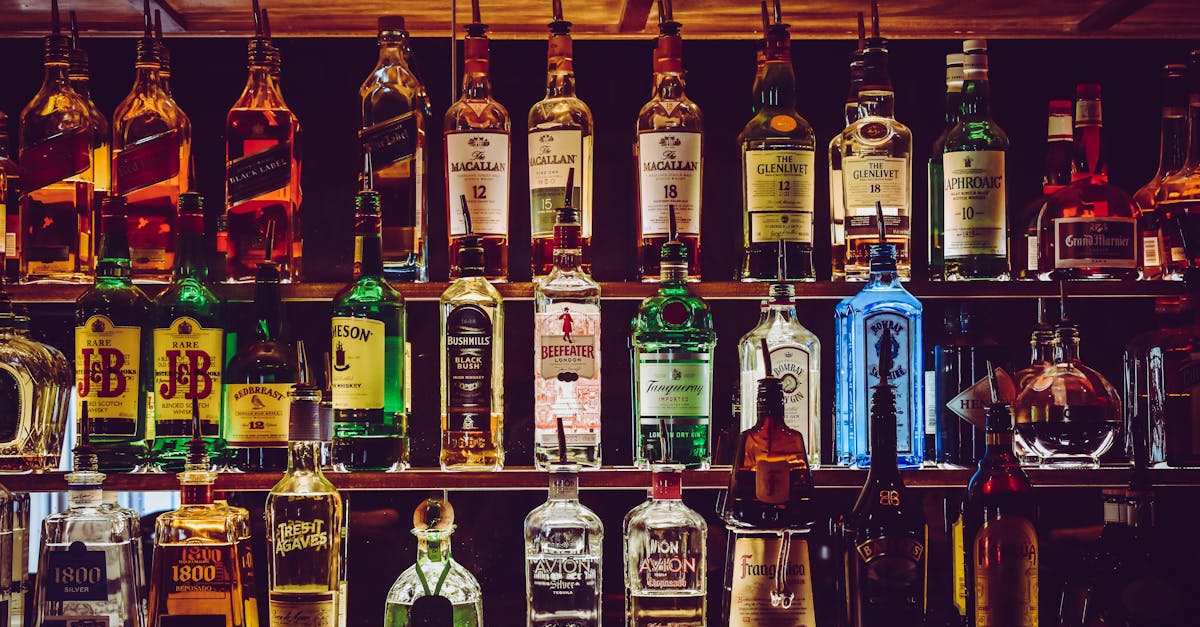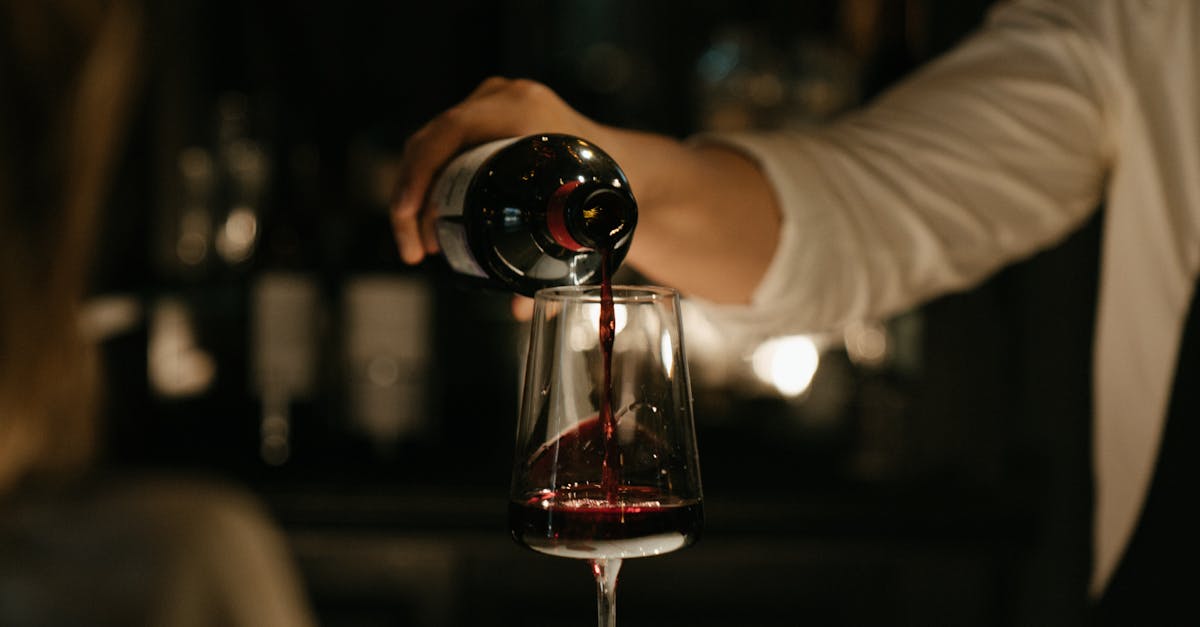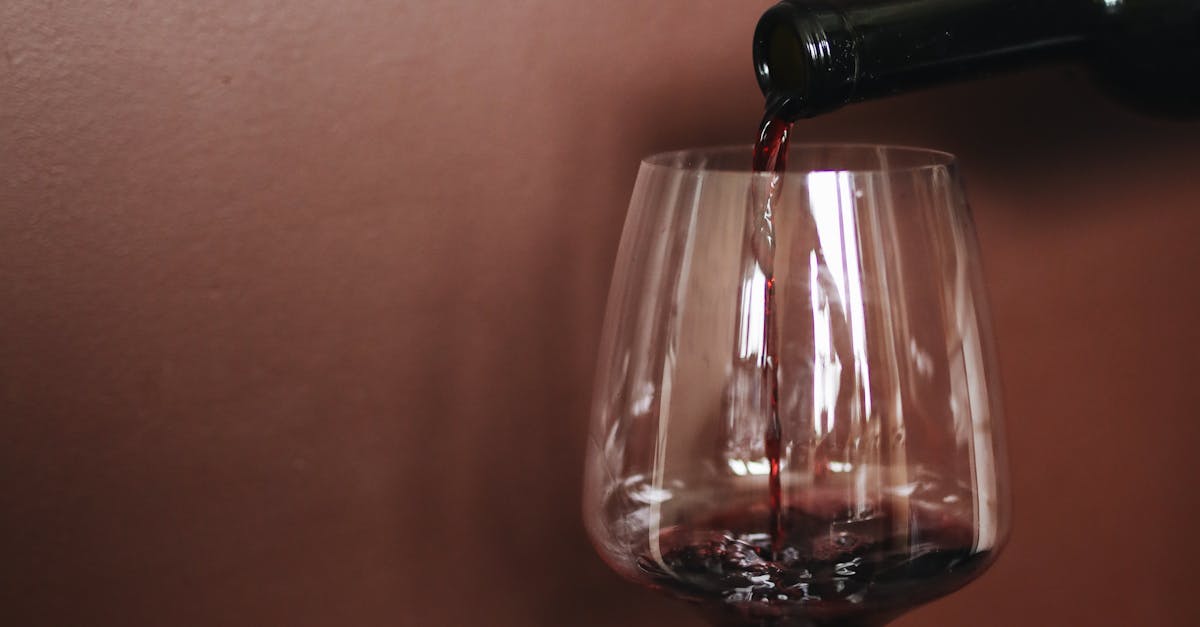
Table Of Contents
Maintaining a Wine Cellar
Maintaining a wine cellar is essential to preserving the quality and longevity of your wine collection. Proper upkeep not only ensures that your wines age gracefully but also adds value to your overall investment. Regular maintenance tasks include monitoring humidity levels, which should ideally fall between 50-70%, to prevent corks from drying out and oxidizing the wine. Additionally, consistent temperature control is crucial, with most experts recommending a range between 55-58 degrees Fahrenheit to keep wines at their best.
One practical tip for maintaining a wine cellar is to conduct a thorough inspection of your collection periodically. Check for any signs of leakage or mold, as these can compromise the quality of your wines. Custom Bars and Wine Cellars also suggest rotating your wine bottles periodically to prevent sediment build-up, ensuring that each bottle maintains its intended flavor profile and quality over time. Regularly organizing and cataloging your collection can help you keep track of the wines you have, making it easier to locate specific bottles when desired.
Cleaning and Organization
Having a well-maintained wine cellar goes beyond just storing wine; proper cleaning and organization are essential for maximizing the value and functionality of the space. When it comes to cleaning, regularly dusting shelves, wiping down bottles, and vacuuming any debris are necessary tasks to prevent contamination and maintain a pristine environment for your wine. Ensure that the cellar is free of any mold or mildew by inspecting corners and crevices, as these can negatively impact the quality of your collection. An organized wine cellar not only enhances the aesthetic appeal but also helps in efficiently managing your inventory. Grouping wines by varietal, region, or aging potential can make it easier to locate specific bottles when needed.
Custom Bars and Wine Cellars emphasize the importance of investing time in organizing your wine cellar according to your preferences and needs. Labeling shelves or using a wine inventory system can aid in tracking the acquisition dates and optimal drinking windows of each bottle. Incorporating adjustable shelving or modular storage units can accommodate different bottle sizes and adapt to the evolving needs of your collection. Additionally, incorporating designated areas for wine accessories such as corkscrews, decanters, and glassware can enhance the overall functionality of the space, creating a more enjoyable and efficient wine-tasting experience.
DIY Wine Cellar vs. Professional Installation
When considering whether to set up a wine cellar in your home, one of the primary decisions to make is whether to go ahead with a do-it-yourself (DIY) approach or opt for professional installation services. Each option has its own set of advantages and disadvantages that should be carefully weighed before making a choice.
For DIY enthusiasts, building a wine cellar can be a fulfilling project. It allows for personalization and creativity in the design process, enabling individuals to tailor the cellar to their specific needs and preferences. However, DIY projects require significant time and effort, as well as a certain level of expertise to ensure that the cellar is built properly. In contrast, hiring professionals such as Custom Bars and Wine Cellars can provide a more streamlined and efficient process. These experts have the knowledge and experience to design and install a wine cellar that meets quality standards and is tailored to the customer's requirements.
Cost Comparison
When comparing the costs of a do-it-yourself wine cellar versus professional installation, it is essential to consider several factors. Custom Bars and Wine Cellars can be more expensive initially due to the skilled labor and expertise involved in design and construction. On the other hand, a DIY project may seem more cost-effective at first; however, hidden expenses can quickly add up, such as tools, materials, and the potential for errors that may require professional intervention.
It's important to note that the costs associated with Custom Bars and Wine Cellars vary based on the size, materials, location, and design complexity. Professional installation typically ensures a higher quality finished product and can increase the overall value of your home. On the other hand, a DIY wine cellar allows for personal customization and may be a more suitable option for those with specific design preferences and a limited budget.
Wine Cellar Trends
Custom Bars and Wine Cellars have become increasingly popular as more homeowners seek to create personalized spaces for their wine collections. One prevailing trend is the integration of technology into wine cellars, with features such as climate control systems and smart refrigeration units becoming more common to ensure optimal storage conditions for various wine types. This technological advancement not only enhances the functionality of wine cellars but also provides a convenient way for collectors to monitor their inventory.
Another noticeable trend in Custom Bars and Wine Cellars is the emphasis on aesthetic appeal and design. Many homeowners are opting for customized cellar designs that reflect their individual style preferences, whether it be modern, rustic, or traditional. Incorporating elements like mood lighting, unique storage displays, and luxurious finishing touches has transformed wine cellars into sophisticated and visually captivating spaces that add both value and charm to homes.
Sustainable Materials
Sustainable materials have become a focal point for those looking to create environmentally friendly wine cellars. Custom Bars and Wine Cellars are increasingly incorporating materials that have minimal impact on the environment while still being durable and aesthetically pleasing. Instead of traditional hardwoods that may contribute to deforestation, options like bamboo and reclaimed wood are gaining popularity for their sustainability and unique character.
In addition to utilizing eco-friendly woods, designers are exploring other sustainable options for wine cellar construction. Recycled glass, natural stone, and even recycled metal elements are being integrated into wine cellar designs to reduce environmental impact. By incorporating these sustainable materials, Custom Bars and Wine Cellars not only enhance the visual appeal of the space but also contribute to a greener approach in the construction industry.
FAQS
Are wine cellars a good investment for adding value to a home?
Wine cellars can indeed add value to a home, especially for wine enthusiasts or potential buyers looking for a unique feature. They can enhance the overall appeal and desirability of a property.
How do wine cellars contribute to the value of a home?
Wine cellars can enhance the luxury factor of a home, providing a designated space for storing and showcasing a wine collection. This feature can attract buyers who appreciate wine and entertainment, potentially increasing the resale value of the property.
Do wine cellars require special maintenance to retain their value?
Yes, maintaining a wine cellar is essential to ensure it remains an attractive feature of the home. Regular cleaning, temperature control, and organization of the wine collection are key factors in preserving the value of a wine cellar.
Is it better to opt for a DIY wine cellar or professional installation when considering the value it adds to a home?
While a DIY wine cellar may be cost-effective, a professionally installed wine cellar often adds more value to a home due to its quality construction and customization options. Professional installation can also ensure proper insulation and climate control, which are crucial for preserving wine.
Can the materials used in a wine cellar impact its value?
Yes, the materials used in a wine cellar, such as sustainable and high-quality wood, metal racks, and energy-efficient cooling systems, can enhance its value. Opting for sustainable materials not only adds a modern touch but also appeals to environmentally conscious buyers, increasing the overall value of the wine cellar and the home.
